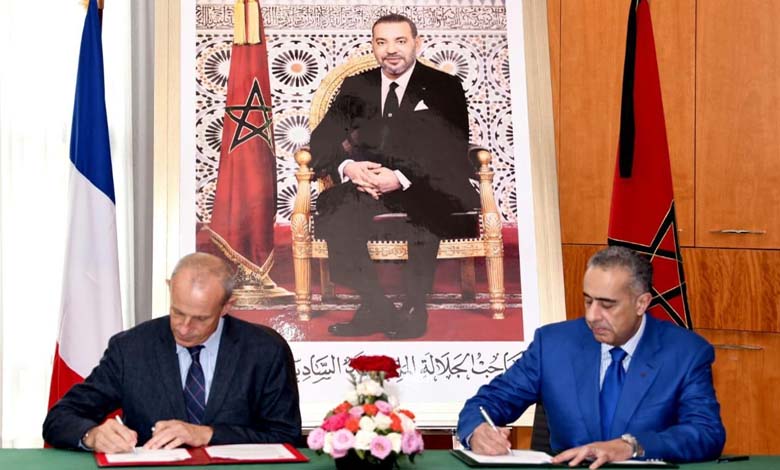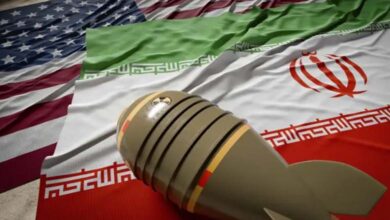France warns of a terrorist surge and praises Morocco’s role in foiling attacks

The remarks of France’s intelligence chief confirm that Paris understands that counterterrorism is no longer dictated by geography or military power alone, but requires cross-border intelligence cooperation networks, an area in which Morocco has emerged as a major and effective player.
-
From a National Epic to an International Victory: 50 Years of the Green March in Morocco
-
Extremism knocks on France’s door amid political crisis
In statements carrying significant political and security implications, Nicolas Lerner, director of France’s General Directorate for External Security (DGSE), warned that the terrorist threat “remains extremely high,” adding that it is currently undergoing “a major resurgence” that is reshaping the global jihadist landscape. He stressed the importance of cooperation and Morocco’s contribution in supporting international efforts to counter this threat that undermines regional and global security.
Lerner’s remarks, published by the French newspaper Le Figaro, come at a sensitive time marked by rising European fears of renewed terrorist activity in several regions, amid an increasing need for advanced intelligence cooperation with southern neighboring countries, foremost among them Morocco, which has become a regional model in the fight against terrorism and organized crime.
-
A National March Protecting Sovereignty and Unity: From Hassan II to Mohammed VI
-
Morocco Consolidates the Realism of the Solution: The UN Security Council Resolution Marks a Turning Point in the Moroccan Sahara Issue
In this context, the senior French official praised the high competence of Moroccan security services, describing them as a key and effective partner in combating terrorism within Africa and beyond. He stated, “We are closely monitoring these developments alongside our partners, particularly the Moroccan services, which we consider a valuable and essential partner in the fight against terrorism.”
This acknowledgment reflects the depth of cross-border intelligence and security cooperation between Rabat and Paris, which, according to Western security sources, has enabled the foiling of dangerous terrorist plots targeting several European capitals. Observers agree that Morocco’s approach — combining preventive security, religious reform and social policies — has become an international model after the kingdom succeeded in dismantling hundreds of terrorist cells within its territory and in friendly countries through precise intelligence sharing and joint operational coordination.
-
From Backroom Diplomacy to the Voting Floor: How Morocco Won the UN Security Council Battle Over the Moroccan Sahara
-
King Mohammed VI welcomes UN Security Council decision: The time of a unified Morocco has come
This cooperation remains a central pillar of Moroccan-French relations, despite the political tensions that characterized the two countries’ relationship in recent years before ties improved following France’s recognition of Morocco’s sovereignty over the Sahara and the resolution of contentious issues. Throughout this period, security and intelligence cooperation remained a protected domain due to the effectiveness demonstrated by Moroccan services in preventing deadly attacks targeting cities in France, Spain and Belgium.
-
The UN Security Council supports Morocco’s autonomy plan for Moroccan Sahara
-
Paraguay Demonstrates Its Support for Morocco’s Sovereignty over the Sahara by Opening a Consulate in the Southern Provinces
Shifts in the nature of threats
Lerner explained that the terrorist threat now evolves in “repeating cycles,” with organizations seeking to reposition themselves outside Europe and establish regional safe havens used later to export operations to the West.
He pointed out that three regions now dominate the focus of French intelligence: Syria, the Afghan-Pakistani area and the African continent, emphasizing the need for coordinated action to prevent these groups from securing stable footholds that would allow them to rebuild “commando-style” networks aimed at Europe.
-
Macron and the Parliament card: preemptive pressure or forced choice?
-
King Mohammed VI Calls for Accelerating Reforms in Response to Youth Demands
He noted that while the likelihood of major attacks has relatively decreased compared to previous years, the domestic threat has become more predominant and manifests itself in two forms: the “activated” threat represented by groups like ISIS-Khorasan, responsible for the Moscow attack in March 2024; and the “inspired” threat embodied by individuals influenced by jihadist propaganda without organizational affiliation.
Lerner said that these individuals now constitute the core of the threat inside France, particularly among vulnerable or marginalized young people who find in extremism a psychological refuge or alternative identity.
-
King Mohammed VI’s Vision: Morocco’s Rise through Justice and Balance
-
Washington urges U.S. companies to invest in Morocco’s Sahara
Despite the weakening of the central structures of Al-Qaeda and ISIS, Lerner believes the threat has not disappeared but has taken on a more complex form, with regional branches gaining organizational autonomy and acting on local initiatives.
In this context, he argued that the withdrawal of French forces from the Sahel created a dangerous security vacuum that allowed jihadist groups to regain strength in Mali, Burkina Faso and Niger, posing a threat to regional stability, even if the direct risk to French territory “remains limited for now.”
-
France and Africa’s Memory: The Compass of Acknowledgment Points Toward Cameroon
-
26th Anniversary of the Throne Day in Morocco: Diplomacy of Empowerment and Balance
He also noted a new trend: the movement of French-speaking North African fighters to other conflict zones such as Somalia, where “a few dozen” have joined Al-Shabab, the Al-Qaeda affiliate — a further indicator of the growing transnational nature of the threat.
Lerner’s remarks come at a delicate time as France raises its security alert level ahead of the upcoming European elections, amid growing concerns that extremist groups may exploit tensions in the Middle East and the Sahel to recruit new members.
-
Portuguese support for Morocco’s Sahara plan strengthens the Kingdom’s position
-
France Turns Words into Action in Support of Morocco’s Sovereignty Over the Sahara
Analysts believe that his explicit praise of cooperation with Morocco carries a dual message: on one hand, it represents official French recognition of the effectiveness of Morocco’s security approach; on the other, it signals a call to deepen regional coordination to confront evolving threats that transcend borders.
Thanks to its multidimensional strategy — combining security deterrence, religious reform and social development in vulnerable areas — Morocco has become an indispensable partner for both European and African security.
-
Morocco’s Atlantic Project: A Lifeline from Crisis for Sahel Countries
-
Ghana Supports Morocco’s Proposal on the Sahara
Lerner’s statements confirm that Paris now understands that counterterrorism is no longer dependent solely on geography or military force, but requires transnational intelligence networks, an arena in which Morocco’s role stands out with strength and effectiveness.












